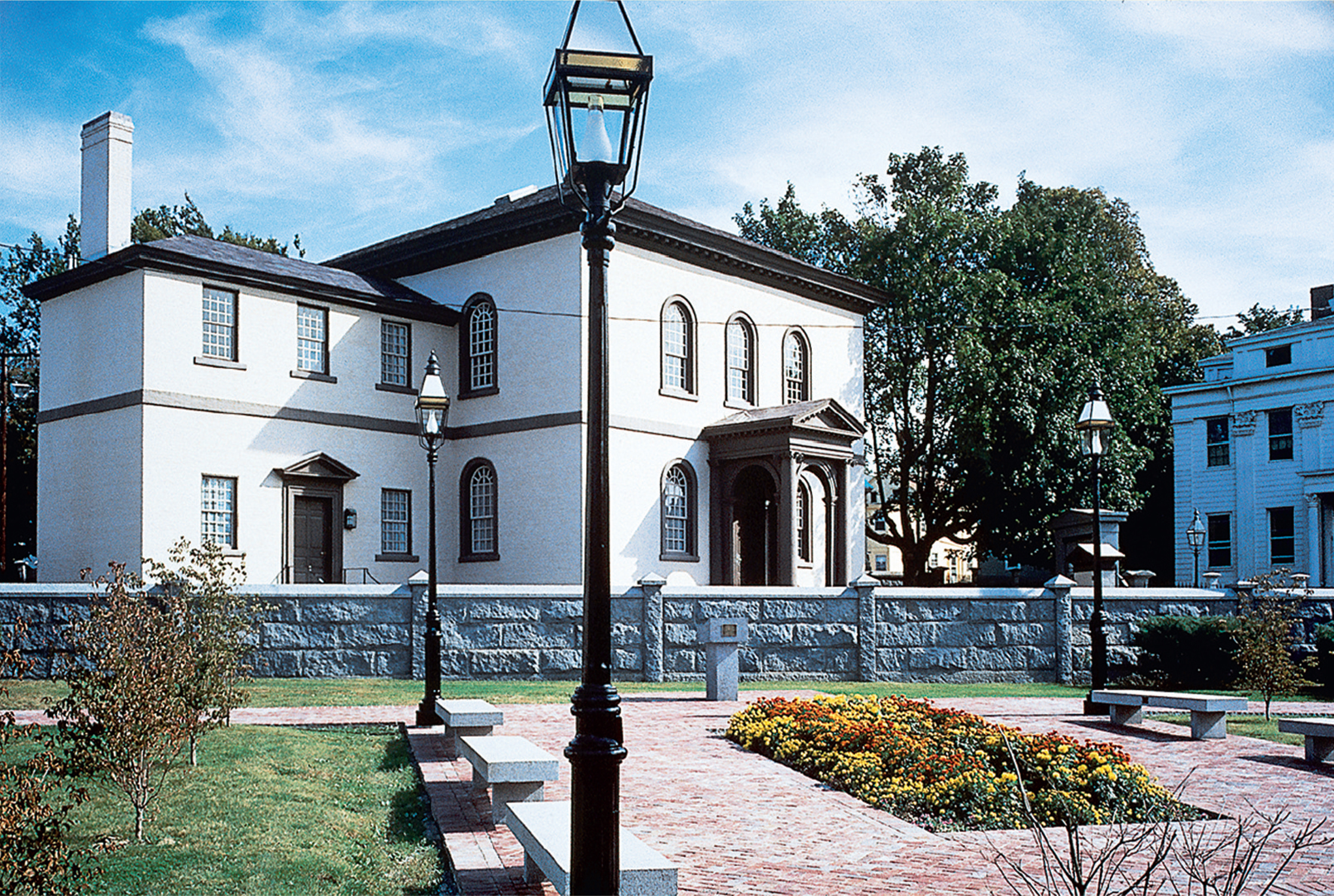Historical Question: “Was the New United States a Christian Country?”
Rebecca Samuel, a Jewish resident of Virginia, conveyed her excitement about the new U.S. Constitution when she wrote her German parents in 1791 that finally “Jew and Gentile are as one” in the realm of politics and citizenship. Other voices were distinctly less approving. An Antifederalist pamphlet warned that the pope could become president; another feared that “a Turk, a Jew, a Roman Catholic, and what is worse than all, a Universalist, may be President.”
The document that produced such wildly different reactions was indeed remarkable for the conspicuous absence of religion. The Constitution did not invoke Christianity as a state religion. It made no reference to an almighty being, and it specifically promised, in Article 6, section 3, that “no religious test shall ever be required as a qualification to any office or public trust under the United States.”

Many Christian leaders were stunned at the Constitution’s near silence on religion, a turnabout from most state constitutions. A New Yorker warned that “should the Citizens of America be as irreligious as her Constitution, we will have reason to tremble, lest the Governor of the universe . . .
Measured against the practices of state governments, Hamilton’s observation is hardly credible. The men who wrote the state constitutions actively debated qualifications for voting and officeholding. Along with factors like property ownership, race, gender, and age, many also argued for religious qualifications.
Most leaders of the 1780s took for granted that Christianity was the one true faith and the essential foundation of morality. All but two state constitutions assumed the primacy of Protestantism, and one-
Governors proclaimed fast days and public thanksgivings in the name of the Holy Trinity. Chaplains led legislatures in Christian prayer. Jurors and witnesses swore Christian oaths. New England states passed Sabbath laws prohibiting all work or travel on Sunday. Blasphemy laws punished people who cursed the Christian God or Jesus.
Although close to half the state constitutions did include freedom of religious conscience as an explicit right, this right promised nothing about political equality. How then did the U.S. Constitution come to be such a break from the immediate past? Had the Constitution’s writers really just forgotten about religion?
Not James Madison of Virginia. Madison arrived at the constitutional convention fresh from a hard-
The Virginia Statute expressed Madison’s ideal, but on practical grounds he preferred that the U.S. Constitution say little about religion since state laws reflected a variety of positions. When Antifederalists demanded a bill of rights, Madison drew up a list for the first Congress to consider. Two on his list dealt with religion, but only one was approved: “Congress shall make no law respecting an establishment of religion, or prohibiting the free exercise thereof.” In a stroke, Madison placed religious worship and the privileging of any one church beyond Congress’s power. His second proposal failed to gain traction: “No State shall violate the equal rights of conscience.” Evidently, the states wanted to keep their Christian-
Gradually, states deleted restrictive laws, but as late as 1840 Jews still could not hold public office in four states. Well into the twentieth century, Sunday laws in some states forced business closings on the Christian Sabbath, creating economic hardship for those whose religion prohibited work on Saturday. The guarantee of freedom of conscience in religion was implanted in various founding documents in the 1770s and 1780s, but it took many years to fulfill Jefferson’s and Madison’s larger vision of what true religious liberty means: the freedom for religious belief to be independent of civil status.
Questions for Consideration
- Why do you think so many state constitutions allowed only Protestants to hold political office?
- What point was Jefferson making when he compared opinions about religion to opinions about physics or geometry as relevant factors for officeholding?
Connect to the Big Idea
Is the Constitution’s silence about religious qualifications for officeholding in any way parallel to its lack of specific property qualifications for voting or officeholding?